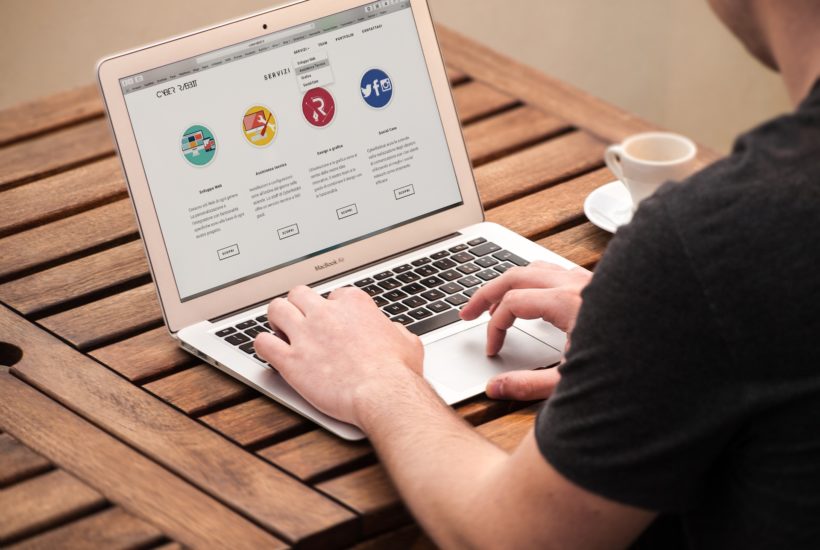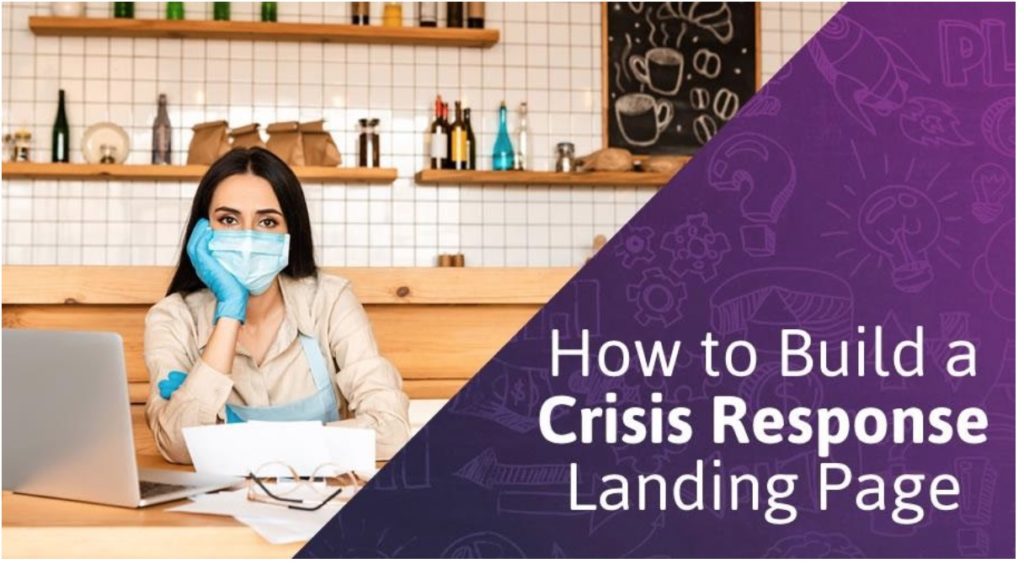Business
How to build a crisis response landing page
During the pandemic, visitors to your business website are looking for reassurance and resources, whether it’s around health precautions you’re taking to prevent the spread of coronavirus or changes to your opening hours. Creating a crisis response landing page is to communicate serious messaging to your customers. Read about the importance of updating your website for COVID-19 and how to do it.

The importance of updating your website for COVID-19
Whether you’re hosting a webinar, giving away a special report, selling a program, or presenting a video series, a landing page inspires your visitors to participate in some way.
Creating a crisis response landing page is a bit different because you’re not trying to convert leads into sales—you’re trying to communicate serious messaging to your customers.
Why should you put up a separate crisis-related page? Your visitors are looking for reassurance and resources, whether it’s around health precautions you’re taking to prevent the spread of coronavirus or changes to your opening hours. It’s important for your small business to have a crisis response plan, and a big part of that is messaging.

What is a landing page?
It’s simply a website page, but it often looks different from your typical website. It has a primary focus—a single “call to action” or focused objective that you want your visitors to pay attention to.
It’s all about keeping the visitor focused on that main objective: your response to COVID-19.
The dos & don’ts of creating a COVID-19 landing page
Click-through website pages are designed to convince the visitor to click through to another page.
This is often done on an eCommerce site, where a marketing campaign will send people to a click-through website pages and provide engaging details about a specific program, product or service. There will be a button that will lead people to buy whatever you’re selling.
If you have a call to action on your COVID-19 response landing page, make sure it’s sensitive and relevant. For example, if you provide counselling services or sell wellness-related items consumers are looking for during this time, it’s fine to show people how to access your offerings.
However, if your small business sells completely unrelated items, don’t clutter your informational website pages with them. The rest of your website can do that; save your COVID-19 landing page for informational purposes. This communication is part of your pandemic response plan, not a sales pitch.
The same goes for lead generation. Marketers use lead generation website pages to capture the name, email address and perhaps other info (like a phone number or occupation) to enter it into a database list, which is stored in a newsletter platform service.
Then, that database list can be used to follow up with people who signed up, either through an autoresponder series, promotional campaign or other newsletter sendout.
You’ll want to avoid having a signup form on your COVID-19 response landing page. Even if you have coronavirus-specific resources to share, now’s not the time to be trying to grab leads from a page like this.
READ: “How to Pivot Your Small Business Strategy During the COVID-19 Crisis”, on our website:
I know this is a scary and isolating time both personally and professionally. I hope you’re staying safe and healthy, and that this article can help you with planning for business challenges related to the coronavirus.
I’ve personally had to pivot many times as an entrepreneur, and while it can be stressful, it can also be a time of innovation and growth. As you’re creating your coronavirus crisis management plan for business, here are a few things to focus on.
6 ways to build an optimal coronavirus landing page
It’s not as simple as putting up a page on your website and waiting for traffic to flow in (just like the rest of your website)!
Here are five ways to design an experience that will resonate with your visitors:
- Start with a clean design. This page of your website should be simple and focused. Website pages with balanced “white space” make it easier for visitors to focus on your coronavirus messaging.
- Add a descriptive headline. Simply putting “Resources” is not compelling. Something like “How We’re Responding to the Pandemic” or “COVID-19 Resources for Our Clients” will capture people’s attention.
- Add images. Maybe not a close-up of the virus itself, which we tend to see on a lot of news sites! Pics of your store or restaurant staff, an image of the outdoors if it’s relevant to your small business…use your imagination.
- Be empathetic. Be clear on why your visitor is on this page to begin with and ensure you are addressing their current needs, challenges and even fears. Show you empathize with those needs and demonstrate they are in the right place.
- Keep it simple. In this case, less is more. Don’t add extra links, wording or visuals that distract your visitors. The whole point of this separate page is to keep viewers focused on the message.
- Format your text. This is especially true if you have a lot of copy. Bold headers, make certain text stand out in italics and add colour to make your page more dynamic.
This is a challenging time for small businesses and customers alike. The more information and peace of mind you can provide your website visitors the better. By creating a pandemic response plan and a separate coronavirus landing page, it shows you’re thinking of—and care about—your customers.
—
(Featured image by Cyber Rabbit via Pixabay)
DISCLAIMER: This article was written by a third party contributor and does not reflect the opinion of Born2Invest, its management, staff or its associates. Please review our disclaimer for more information.
This article may include forward-looking statements. These forward-looking statements generally are identified by the words “believe,” “project,” “estimate,” “become,” “plan,” “will,” and similar expressions. These forward-looking statements involve known and unknown risks as well as uncertainties, including those discussed in the following cautionary statements and elsewhere in this article and on this site. Although the Company may believe that its expectations are based on reasonable assumptions, the actual results that the Company may achieve may differ materially from any forward-looking statements, which reflect the opinions of the management of the Company only as of the date hereof. Additionally, please make sure to read these important disclosures.

-

 Cannabis1 week ago
Cannabis1 week agoSnoop Dogg Opens First Cannabis Store, and Launches 2PAC Cannabis Line
-

 Crowdfunding1 week ago
Crowdfunding1 week agoJena Crowdfunding Campaign Aims to Strengthen Democracy
-

 Crowdfunding2 weeks ago
Crowdfunding2 weeks agoRE-Lender, a Crowdfunding Lending Platform with over 40 Million Raised, Obtains EU License
-

 Biotech3 days ago
Biotech3 days agoSartorius Stedim Biotech Attempts a Modest Rebound After Plunge

























